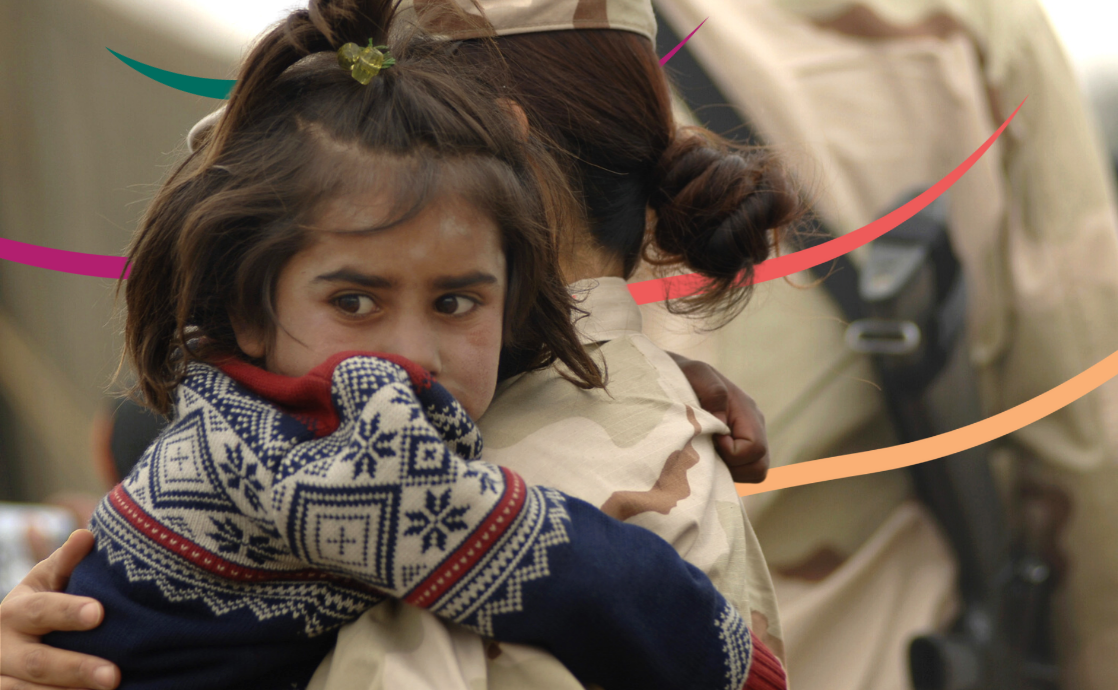In the intricate tapestry of human experience, the intersection of war, peace, and forgiveness stands out as a profound theme, particularly within the framework of the Bahá’í teachings. This spiritual movement, with its emphatic focus on unity and reconciliation, offers compelling insights that can illuminate the path to post-war forgiveness in nations striving to heal from the ravages of conflict. Afghanistan, a nation fraught with nefarious cycles of war and strife, serves as an extraordinary case study wherein Bahá’í principles can catalyze a renaissance of hope and reconciliation.
The Essence of Forgiveness in Bahá’í Teachings
At the heart of the Bahá’í faith lies the tenet of forgiveness. This is not merely a transient emotional release but a profound spiritual endeavor rooted in the recognition of our interconnectedness as human beings. The teachings advocate for transcending grievances, channeling energy towards the construction of a more harmonious society. The principle of forgiveness is intricately linked to the Bahá’í understanding of divine justice, which emphasizes the mercy and compassion of God, inviting believers to exhibit these qualities in their own interpersonal dealings.
In a context like Afghanistan, where animosities may persist due to historical enmities and cultural divides, the act of embracing forgiveness can serve as a pivotal turning point. Forgiveness, in this sense, operates not as a denial of past injustices, but as a transformative force that facilitates healing and reconstruction. By understanding that all individuals are deserving of compassion, communities can mobilize towards collective recovery.
The Legacy of Conflict and Its Psychological Implications
The psychological ramifications of war are manifold, impacting not only individual victims but entire societies. War engenders feelings of trauma, grief, and anger that can reverberate across generations. In Afghanistan, decades of conflict have spawned a pervasive culture of distrust, with individuals often internalizing the scars of violence. The Bahá’í teachings, advocating for the eradication of prejudice and the cultivation of love, present a viable antidote to these psychological burdens.
Understanding the implications of these teachings involves acknowledging the complex interplay of identity and reconciliation. When individuals begin to recognize the collective identity that transcends ethnic, tribal, and sectarian affiliations, they position themselves on a path towards mutual understanding. The Bahá’í call to dismantle barriers and to see beyond divisive labels is crucial in fostering a culture of compassion.
Principes of Unity and Collective Responsibility
Another salient aspect of the Bahá’í faith is its unwavering commitment to unity. This is particularly pertinent in a post-war setting where disparate factions may vie for power or control. The teachings assert that true peace cannot be achieved through mere cessation of hostilities, but rather through a concerted effort towards collective healing and unity. The consolidation of a shared national identity is essential; this engenders a sense of collective responsibility towards rebuilding the common good.
In Afghanistan, where ethnic divisions often complicate governance and societal cohesion, Bahá’í principles advocate for collaborative governance that prioritizes inclusivity. The notion that all hands are needed for reconstruction fosters a shared vision that transcends sociopolitical divides. This calls for dialogue-centric approaches that allow for diverse voices to be heard, ensuring that reconciliation is not only a theoretical exercise but a practical reality.
The Role of Education in Healing and Forgiveness
The power of education, per Bahá’í principles, extends beyond the mere acquisition of knowledge; it encompasses the nurturing of moral character and spiritual development. In post-war contexts, education can serve as a formidable tool for promoting understanding and tolerance. By integrating Bahá’í principles of equality and justice into educational curricula, nations like Afghanistan can foster generations of individuals equipped not only with academic skills but with empathy and resilience.
Moreover, educational initiatives that promote interfaith dialogue and cultural appreciation can dismantle prejudices that have been exacerbated by conflict. This offers a dual benefit: fostering healing within communities while simultaneously preparing individuals for a future where diversity is celebrated rather than resented. Such initiatives can create a fertile ground for forgiveness to flourish as young minds learn to cherish commonalities over differences.
The Symbolism of Service and Humanitarian Efforts
The Bahá’í teachings place a significant emphasis on service to humanity. In the aftermath of conflict, acts of service can bridge chasms created by animosities and grievances. Humanitarian efforts, driven by compassion and an unwavering sense of duty, can contribute to a culture of unconditional giving. These endeavors not only address immediate needs but also cultivate an environment where forgiveness becomes attainable.
In Afghanistan, numerous NGOs and community-based organizations have incorporated Bahá’í principles into their humanitarian work, embodying the spirit of collective service. This not only signifies a commitment to alleviating suffering but also acts as a narrative of hope. Through acts of kindness, communities can gradually reconceptualize their relationships with one another, trading hostility for mutual support.
The Path Forward: Incorporating Bahá’í Teachings in Reconciliation Efforts
The path to post-war forgiveness in Afghanistan, steeped in historical complexities, demands an unwavering commitment to the principles espoused by the Bahá’í faith. By embedding forgiveness, unity, education, service, and collective responsibility into the societal fabric, a new paradigm can emerge—one that does not gloss over past transgressions but rather acknowledges them as stepping stones towards a more harmonious future.
This approach transcends mere theoretical discourse; it necessitates actionable strategies that require the commitment of individuals, communities, and leaders alike. The convergence of belief with action underscores the essence of the Bahá’í teachings, advocating for a society that embraces its past while striving towards a collective future marked by peace and forgiveness.
Ultimately, the journey toward post-war forgiveness in Afghanistan is both a monumental challenge and a profound opportunity. By adopting Bahá’í principles, Afghan society can aspire to not only overcome its fractured history but to emerge resilient, unified, and ready to embrace the luminous future that awaits it.
